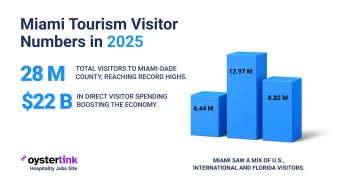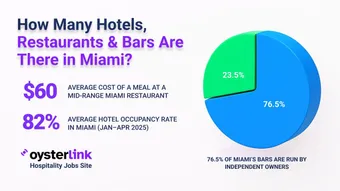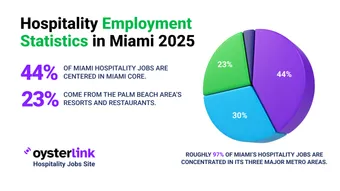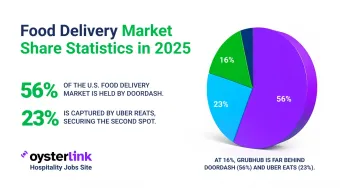Tallahassee, FL Cost of Living: Quick Takeaways
- Housing Costs: Average rent for a one-bedroom apartment in Tallahassee is projected to be around $1,400 in 2025.
- Healthcare Costs: Employer-sponsored healthcare averages about $140.33 monthly, while Silver plan premiums are around $621 monthly.
- Transportation: Public transit fares are affordable at $1.25 for a one-way ticket and $37.50 for a monthly pass.
- Income Levels: Median household income in 2025 stands at $72,200.
Tallahassee, the capital city of Florida, offers a cost of living that is generally below the national average, especially in housing and utilities.
This article provides a detailed breakdown of living expenses in Tallahassee for 2025, covering housing, transportation, healthcare, education and more.
1. Housing Costs in Tallahassee, FL
Housing expenses remain a significant part of living costs in Tallahassee. Here's a historical overview of the average rent for a one-bedroom apartment:
- 2010: Approximately $900
- 2015: Around $1,050
- 2020: Approximately $1,200
- 2024: Reached $1,386
- 2025: Projected to be $1,400
These figures show a steady increase in rent over the years, reflecting changes in the housing market demand within the city.
For hospitality business owners, understanding real estate market trends can help in making informed decisions for property investments.
2. Homeownership and Real Estate Trends in Tallahassee, FL
For those looking to buy property, the median home prices have appreciated over time as shown:
- 2010: Median home price was approximately $150,000
- 2015: Increased to around $200,000
- 2020: Approximately $250,000
- 2024: Reached $275,500
- 2025: Projected to be $280,000
This steady rise indicates a robust real estate market in Tallahassee, impacting affordability and investment decisions.
3. Transportation Expenses in Tallahassee, FL
Transportation in Tallahassee is relatively affordable with multiple options available:
- Public Transit: One-way fare costs about $1.25, with monthly passes priced near $37.50.
- Fuel Costs: Average cost per gallon is roughly $3.24 as of 2025.
- Vehicle Maintenance: Annual maintenance costs average around $1,200.
Costs vary based on commuting needs and vehicle usage.
4. Utility Costs in Tallahassee, FL
Typical monthly utility expenses for an average household include:
- Electricity: $150.45
- Internet Service: $57.42
- Total Utilities: Approximately $207.87 per month
Utility costs are influenced by consumption levels and service provider rates.
5. Grocery and Food Expenses in Tallahassee, FL
Monthly grocery expenses average around $300 per person. Dining out varies:
- Casual Meal: About $11.94
- Mid-range Restaurant Meal: $61.00
Food costs closely align with national averages.
Restaurant owners looking to optimize food service and restaurant profitability may find insights in restaurant revenue statistics.
6. Healthcare Costs in Tallahassee, FL
The city's healthcare expenses include:
- Employer-Sponsored Health Insurance: On average, $140.33 monthly per individual.
- Silver Health Insurance Plan: Premiums average $621 monthly.
Healthcare costs are somewhat higher than the national average, reflecting regional variations.
7. Educational Expenses in Tallahassee, FL
Education is an important consideration:
- Public Schools: Generally tuition-free as funded by taxes.
- Private Schools: Average annual tuition approximately $11,133.33.
- In-state University Tuition: Averages around $6,381 per year at institutions like Florida State University.
Costs vary depending on institution and program.
8. Entertainment and Leisure in Tallahassee, FL
Leisure activities are accessible and varied:
- Movie Tickets: Cost about $13.30 each.
- Gym Memberships: Average $28.25 monthly.
- Dining at Mid-Range Restaurants: Meals cost roughly $61.00.
Annual entertainment expenses amount to approximately $2,482, with personal care services costing about $768 annually.
9. Taxes and Miscellaneous Fees in Tallahassee, FL
Tallahassee residents encounter the following tax rates:
- State Income Tax: Florida has no state income tax (0%).
- Sales Tax: Total around 7.5%.
- Property Tax: Approximately 0.8% of property value.
These taxes influence the overall cost of living and should be factored in budgeting.
10. Childcare and Family Expenses in Tallahassee, FL
Families with children have typical expenses such as:
- Daycare Services: Estimated at $950 monthly.
- After-School Programs: Around $300 monthly.
- Extracurricular Activities: Approximately $100 monthly.
These costs vary with selected programs and family needs.
11. Clothing and Personal Care in Tallahassee, FL
Residents spend about $115 monthly on clothing and $54 monthly on personal care products and services such as grooming.
These expenses reflect personal lifestyle choices but are typical among urban areas.
12. Insurance Costs in Tallahassee, FL
Insurance expenses play a vital role in household budgeting:
- Health Insurance: Average monthly premium for Silver plans is $621.
- Auto Insurance: Annual average around $2,364.
- Homeowners Insurance: Approximately $1,951 annually.
- Renters Insurance: Costs about $180 per year.
These provide necessary financial security for residents.
13. Miscellaneous Expenses in Tallahassee, FL
Additional living costs include:
- Entertainment: $2,482 annually.
- Personal Care Services: About $768 annually.
- Miscellaneous Goods and Services: Around $707 annually.
These expenses contribute to overall lifestyle quality and vary by individual preference.
14. Income and Salaries in Tallahassee, FL
Reviewing income trends gives insight into affordability:
- 2010: Median household income was approximately $46,000.
- 2015: Increased to about $50,000.
- 2020: Rose to approximately $57,760.
- 2023 and 2025: Median income reached $72,200.
These gains reflect economic growth in the city.
Hospitality employers in Tallahassee should consider local salary trends when crafting job listings and compensation packages. For example, salary data and interview questions for various hospitality roles, such as bartender salary and restaurant manager salary, can help create competitive offers.
15. Comparison with National Averages
Compared to national averages, Tallahassee offers:
- Overall Cost of Living: Approximately 7% lower.
- Housing: Housing costs about 15% less.
- Utilities: Utility expenses are 16% lower.
- Food: Food costs roughly in line with national averages.
- Healthcare: About 11% higher than the national average.
- Transportation: Slightly lower by 3%.
- Goods and Services: About 4% less expensive.
These reflect Tallahassee's affordable living conditions in many categories, with some higher healthcare expenses.
Our Methodology for Tallahassee, FL Cost of Living Figures
Our data is compiled from reputable sources including Numbeo, the Bureau of Labor Statistics, Zillow, and local government reports. When exact figures are unavailable, estimates based on comparable regional data are used to ensure accuracy and relevance.
Tallahassee, FL Cost of Living: Conclusion
Tallahassee offers an overall cost of living lower than national averages, particularly in housing and utilities, making it a relatively affordable city in Florida.
While healthcare costs tend to be higher, transportation and everyday expenses remain manageable for residents.
Understanding these financial elements is essential for anyone planning to move to or live in Tallahassee in 2025, enabling informed budgeting and lifestyle decisions.
For hospitality employers, building a strong team is vital; consider strategies on restaurant staff hiring to find and retain the right employees in a competitive market.




